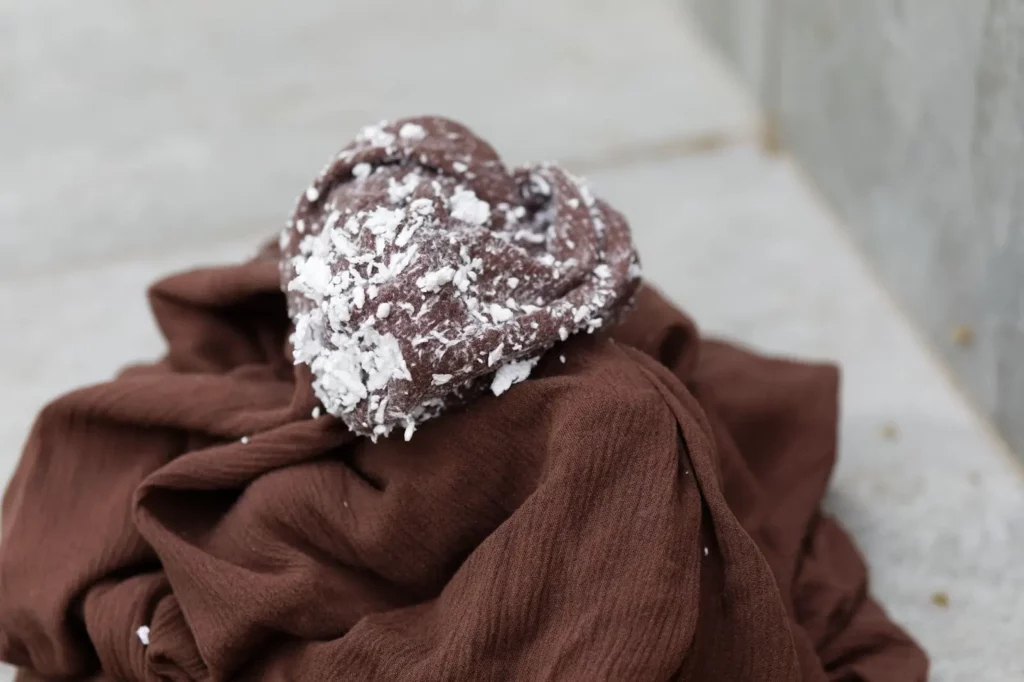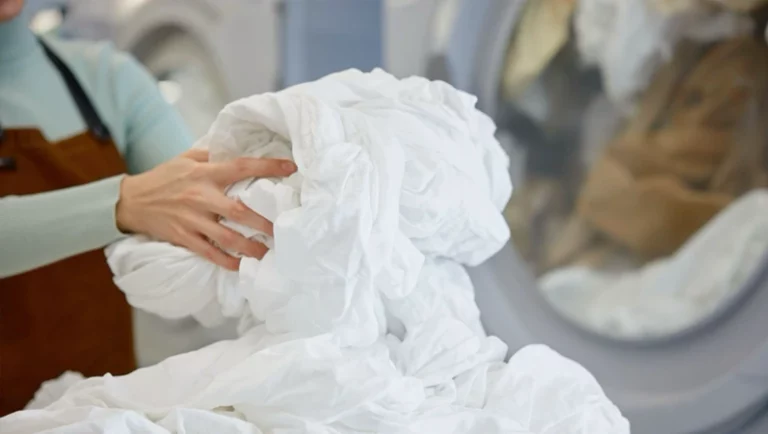Finding white residue on your clothes after a wash can be frustrating. This common issue can leave your favorite garments looking dull and unclean, even after they’ve been through a wash cycle. Understanding the root causes and implementing proper laundry techniques can help you keep your clothes looking fresh and residue-free.
What Causes White Residue on Clothes After Washing?
Is there white residue after washing clothes? White marks on clothes after washing is typically caused by a few recurring issues that can occur during the washing process. Identifying these factors can assist in mitigating their impact and ensuring cleaner laundry.
Hard Water and Mineral Deposits
Hard water contains high levels of minerals like calcium and magnesium. When these minerals mix with detergent, they can form insoluble salts that leave a white residue on your garments. This is especially prevalent in areas with naturally hard water.
Excess Detergent Buildup
Using too much detergent can be counterproductive. If the detergent is not fully rinsed out during the wash cycle, it may accumulate on your clothes, leaving visible streaks or marks. This is particularly noticeable on dark fabrics.
Fabric Softeners and Overuse
Fabric softeners can sometimes leave behind a greasy or waxy film on clothes, which can appear as a white residue. Overuse or using a product not suited to your washing machine type can exacerbate this problem.
How Does Water Hardness Affect White Residue?
Water hardness greatly affects the efficacy of detergents. Hard water can prevent detergent from lathering properly, needing more detergent for the wash but resulting in more residue. Additionally, mineral deposits can build up on clothing fibers, making it more challenging to eliminate white stains on shirts.
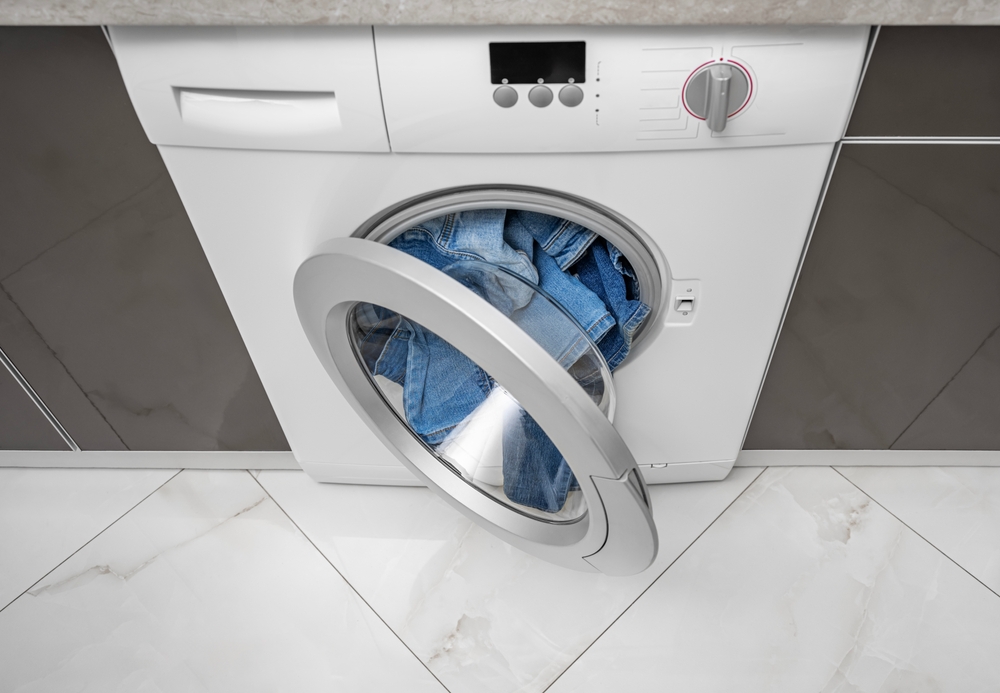
Can Overloading the Washing Machine Cause White Residue?
Yes, overloading the washing machine can definitely cause white residue. When your washing machine is too full, there’s less room for water and detergent to circulate. This obstruction means detergents and other laundry additives can’t dissolve properly, leading to buildup on your clothes.
Are There Specific Detergents That Cause More Residue?
Powdered detergents are more likely to cause residue issues compared to liquid detergents. Incomplete dissolution in cold water cycles can leave behind granules that cling to fabric. Choosing the right detergent for your machine type and water hardness can help alleviate residue problems.
How Can You Prevent White Residue on Dark Clothes?
Do you see white marks on black clothing? Or you may ask why does my washer leave residue on my clothes? To prevent the occurrence of white residue on your dark clothes, you can follow these specific tips. These approaches focus on the correct use of detergent, fabric softener, and machine settings to ensure optimal washing results.
1. Use the Right Amount of Detergent
Using too much detergent is a common mistake. Check the manufacturer’s recommendations and adjust based on the detergent type and load size to prevent buildup and residue.
2. Avoid Fabric Softener
Consider avoiding fabric softener altogether, especially for dark clothes, as it can leave a film. If you must use it, opt for fabric softener sheets or use a lesser quantity of liquid softener recommended by the manufacturer.
3. Use Liquid Detergent
Liquid detergents tend to dissolve better in both cold and warm water, reducing the chance of residue. Switching to a liquid formula can minimize white streaks on clothes.
4. Wash in Warm Water
Warm water helps to dissolve detergents and fabric softeners more effectively. It can also prevent the formation of mineral deposits from hard water.
5. Select Extra Rinse Cycle
Using an extra rinse cycle ensures that any remaining detergent and fabric softener are thoroughly washed out, preventing residue from settling on your clothes.
6. Do Not Overload the Washer
If you are experiencing that your washer is leaving white residue on clothes. Make sure not to overload the washer. Adequate space in the machine allows the water and detergent to circulate evenly, ensuring all clothes are properly cleaned and rinsed.
7. Pre-dissolve Detergent
Pre-dissolve powdered detergent in a small amount of warm water before adding it to the washer. This step helps to ensure it is fully dissolved and reduces the likelihood of residue.
8. Use a Water Softener
A water softener can be helpful in areas with hard water. It will neutralize minerals that cause detergent buildup and residue, providing a better washing environment.
9. Clean the Washing Machine
Regularly cleaning your washing machine prevents residual detergent, fabric softener, and mineral buildup that can contribute to future residue issues.
10. Sort Clothes by Color and Fabric
Sorting clothes by color and fabric type ensures that each load can be washed under optimal conditions, reducing the likelihood of residue on specific garments.
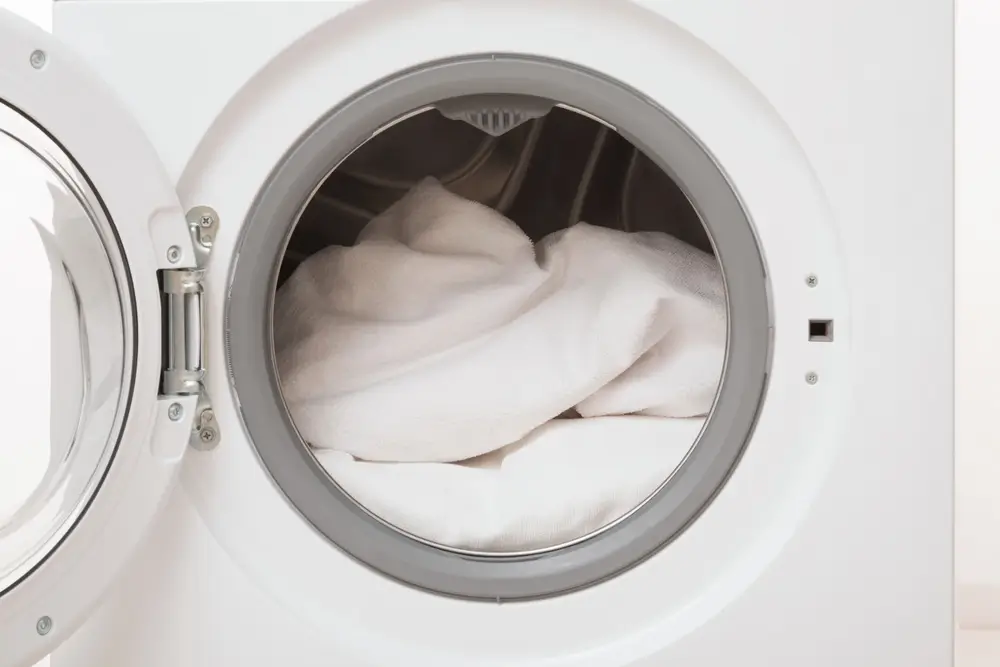
Does the Washing Machine Type Matter?
Yes, the type of washing machine you use can impact the presence of white residue on your clothes. Front-load washers typically use less water and have a more effective rinsing mechanism compared to top-loaders. High-efficiency washers also require less detergent but need specific formulations to prevent buildup. Selecting the appropriate washer and using it correctly ensures cleaner clothes and minimizes residue.
How Important Is Proper Rinsing in Preventing Residue?
Proper rinsing is crucial in preventing residue. The rinse cycle helps remove any detergent, fabric softener, and dirt particles that remain on clothes after washing. Inadequate rinsing can leave these substances on your garments, resulting in visible streaks or marks. Utilizing an extra rinse cycle or selecting high-efficiency rinse settings can help ensure thorough removal of any residues.
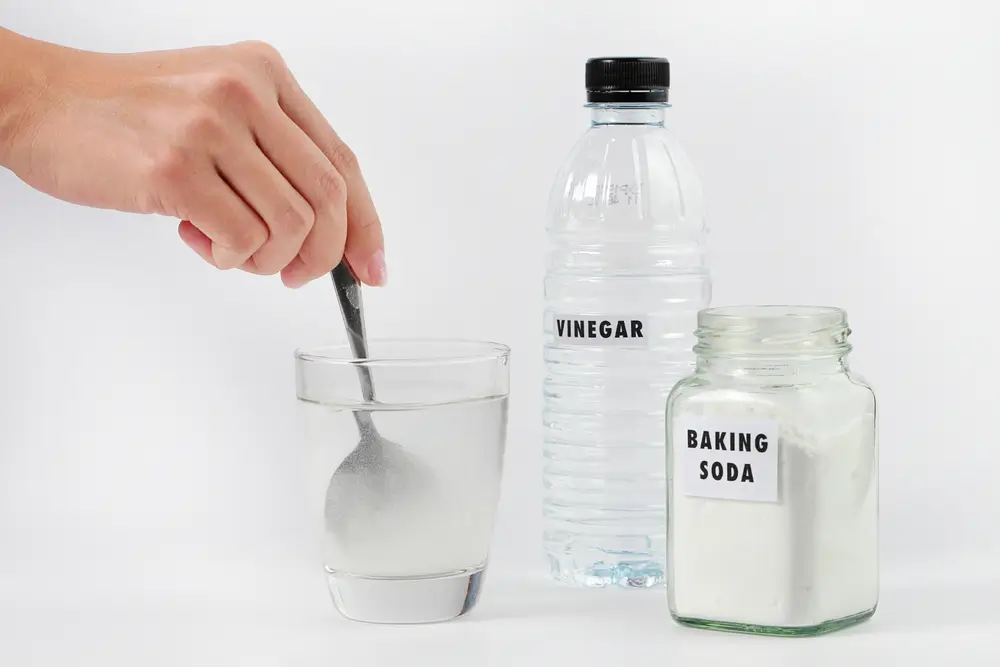
Can Adding Vinegar or Baking Soda to the Wash Help?
Adding vinegar or baking soda to your wash can effectively combat residue. Vinegar acts as a natural fabric softener and helps to break down detergent residues, while baking soda can enhance cleaning and deodorizing. Incorporating these natural solutions during the wash cycle can minimize white streaks and enhance the freshness of your laundry.
What Should You Do If Clothes Already Have White Residue?
If you find white residue on your clothes, there are several steps you can take to remove it and prevent reoccurrence in future washes.
1. Shake or Brush Off Residue
Gently shake or brush off the residue from your clothes. This simple step can help remove loose buildup before attempting further cleaning methods.
2. Rinse Thoroughly
Rinse the affected clothing items thoroughly with water to help dissolve any remaining detergent or mineral deposits. This can be done manually or in a washing machine.
3. Use Vinegar Solution
Soak the clothes in a solution of one part white vinegar to one part water. Vinegar breaks down residues and removes buildup effectively. Let the clothes soak for at least 30 minutes before rinsing thoroughly.
4. Rewash Clothes
Rewash the clothes using a small amount of liquid detergent. Avoid using fabric softener in this cycle to prevent additional buildup.
5. Check for Residue Before Drying
Before moving clothes to the dryer, check for any remaining residue. If found, rinse or rewash as necessary to ensure all buildup is removed.
6. Avoid Overloading the Washer
Ensure the washing machine is not overloaded. Apportioning adequate space allows for proper circulation of water and detergent, promoting effective cleaning and rinsing.
7. Use the Right Amount of Detergent
Reassess the amount of detergent spots on clothes after wash. Following the manufacturer’s guidelines and adjusting for water hardness can help prevent further residue issues.
8. Switch to Liquid Detergent
Consider switching to liquid detergent, which typically dissolves better than powdered formulas, reducing the chances of residue.
9. Use a Water Softener
Install a water softener to tackle hard water issues. This can reduce mineral deposits and improve detergent efficiency, leading to cleaner clothes.
10. Clean the Washing Machine
Regularly clean your washing machine to remove accumulated residues that can transfer onto clothes. Run a cleansing cycle with an appropriate washing machine cleaner to keep your machine in optimal condition.
Keeping Your Laundry Residue-Free
White residue on clothes after washing can be a nuisance, but understanding its causes and implementing preventative measures can make a significant difference. Whether it’s using the right detergent, employing effective rinsing methods, or choosing the appropriate washer, these steps are essential in maintaining the cleanliness and appearance of your garments.
If you’re ever in need of professional laundry services, consider visiting a washateria in Corpus Christi, like SpinXpress. We offer state-of-the-art machines and expert care to ensure your clothes are cleaned thoroughly, free from residue, and looking their best.
By applying these tips, you can enjoy a more satisfying and efficient laundry experience, keeping your clothes fresh, clean, and residue-free.

